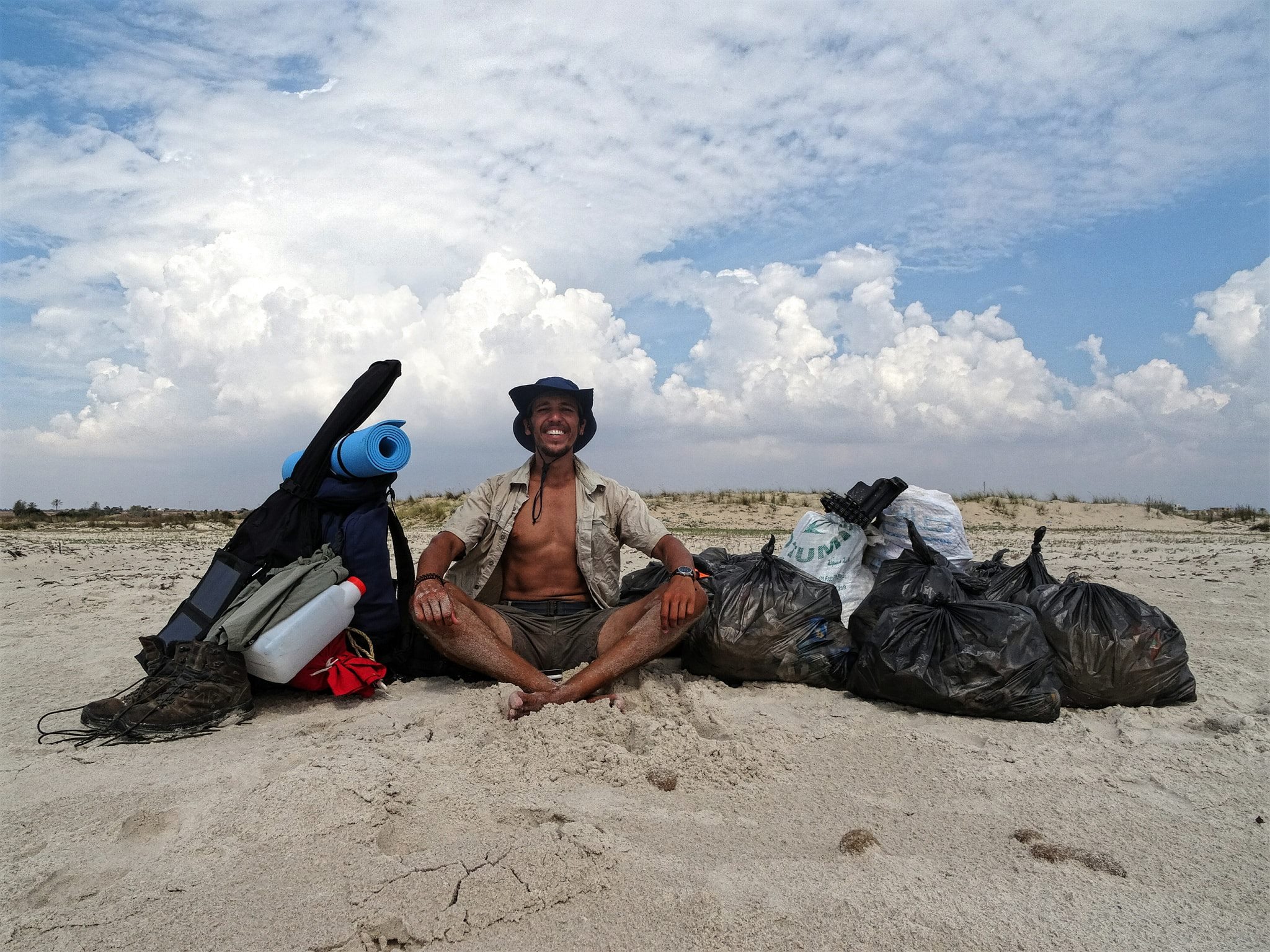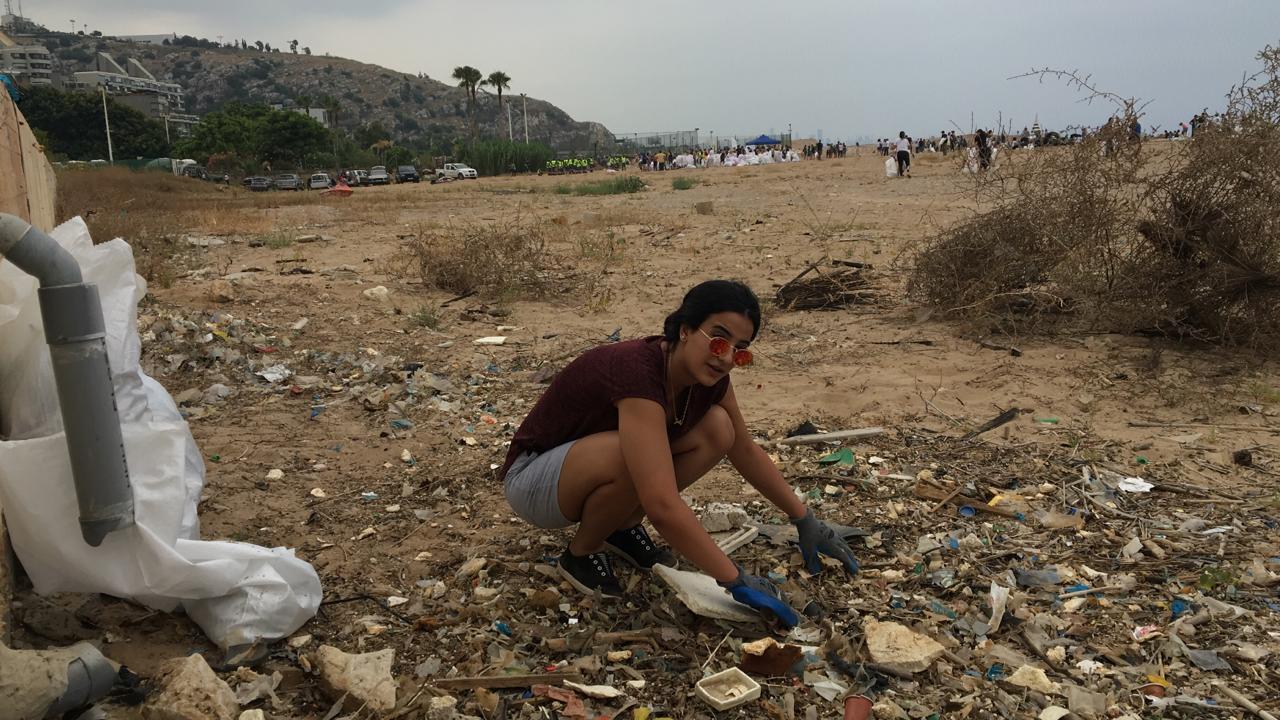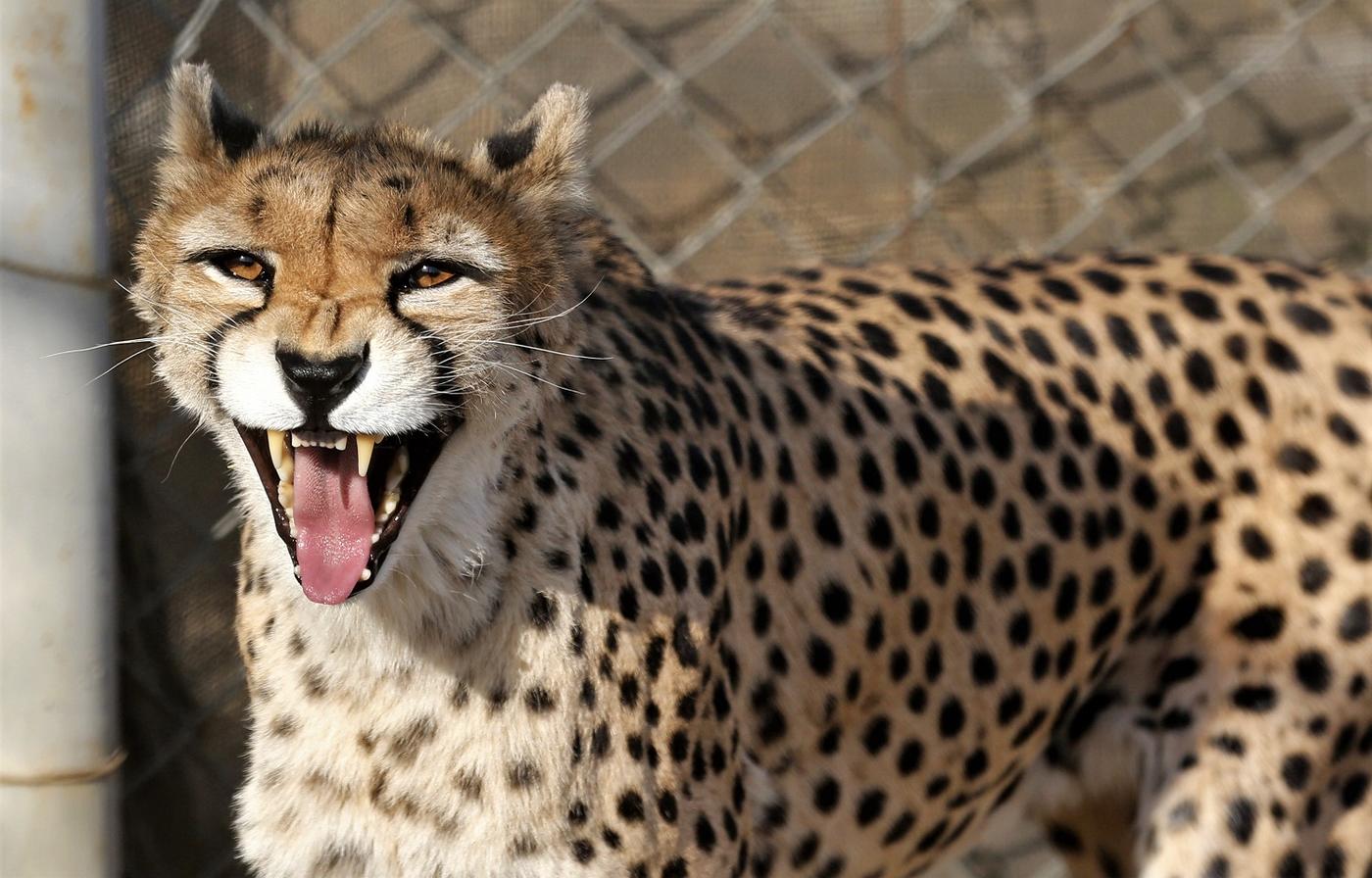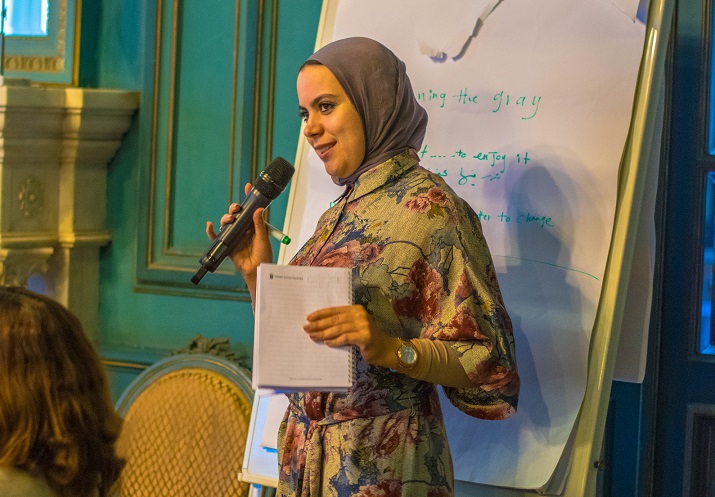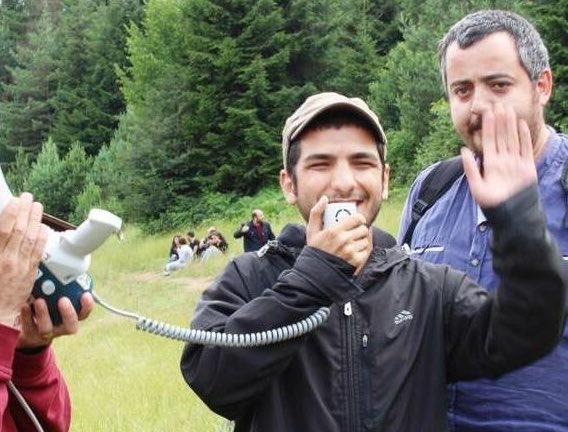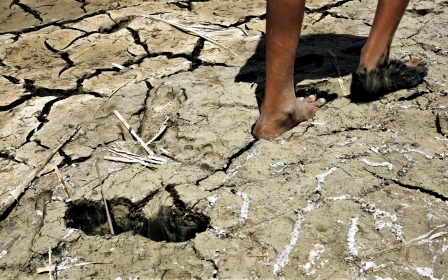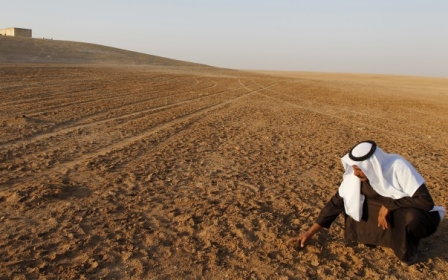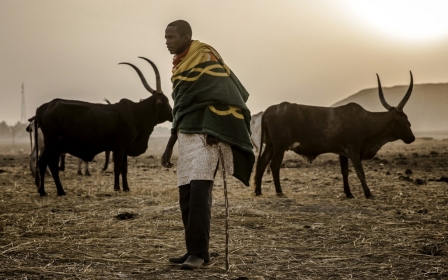Climate change in the Middle East: These young activists are making a difference
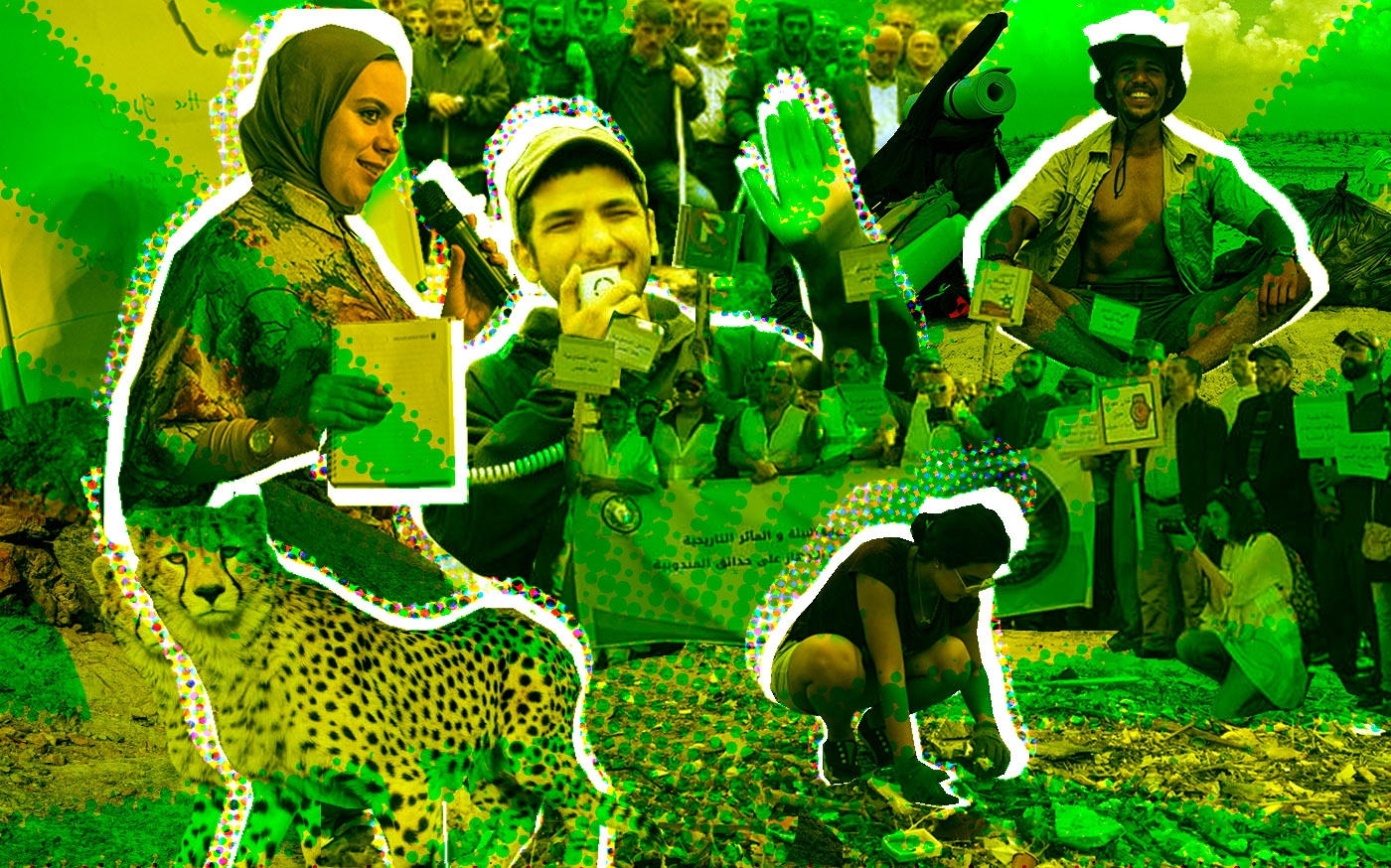
Greta Thunberg's protest started small.
In September 2018, hoping to push her government to take urgent action against climate change, the then-15-year-old sat outside the Swedish parliament in Stockholm for three weeks and next to her was a sign that read: "School Strike for the Climate".
New MEE newsletter: Jerusalem Dispatch
Sign up to get the latest insights and analysis on Israel-Palestine, alongside Turkey Unpacked and other MEE newsletters
Since then, she has continued with her protest, which she called "FridaysForFuture", bringing along hundreds of thousands of school students and others around the world with her.
This week, as more than 5,000 protests across the world are expected ahead of the United Nations' Climate Action Summit next week, we profile young climate change activists and environmentalists making a difference in the Middle East and North Africa.
Tunisia: The plastics picker
The idea to clean up Tunisia came to Mohamed Oussama Houij during a midday stroll. “I wanted to walk for 10 kilometres on the beach and, during that walk, I realised that there was too much plastic,” he recalls.
So the 28-year-old, who is known in his family for his independent streak (“They are quite used to me coming up with strange ideas”), started to pick up debris.
“If I can do it one day, I can do it during the whole summer,” he thought.
It was the start of 300 Kilometres, Houij’s 58-day trek across coastal Tunisia last summer. For eight or so weeks, he picked up plastic across the country, supported by collectors who helped him in his task and more than a few fans willing to let him sleep in their homes instead of on the beach.
Houij estimates that, as he worked his way up the coast, he picked up more than 100kg each day. “Some days, I ended up with more than 40 big bags, all filled with plastic,” he recalls.
There were bottles from the 1970s and parts of Peugeot motors, mixed with sweet wrappers from Italy, France and Greece. He stopped worrying about utensils to eat because he knew he could find them at the beach.
'We are a big part of the problem. We created it, we should be dealing with it'
- Mohamed Oussama Houij
Plastic pollution is not only a threat to the world’s oceans. Experts report that single-use plastic, which contributes to greenhouse gas emissions at every stage of its lifecycle, is also accelerating climate change. Houij said his undertaking was as much a success for the heaps of plastic he cleared as it was for inspiring further cleanups and raising awareness
But for some, his campaign was too much.
Houij says that while he was cleaning up in the town of Hamem Ghzez, he caught municipal workers on camera, dumping trash they had collected into a dry lake, from where it would be carried out to sea during the rainy season. The workers caught Houij filming and broke his camera. But he felt he had won because journalists covered what he had witnessed and the environmental minister came too.
Another day, he laughs, he was arrested “on charges of who are you? Why are you doing this? Completely crazy.”
Houij acknowledges the gap that exists between individual action and the sheer scale of climate change.
“It’s a real urgent matter, especially for Tunisia,” he says. “We are facing drought. We are facing crop depletion and a massive extinction of plants, and we are still thinking: ‘Yeah, hey sure, let’s not use plastic bags’.”
The use of plastics is a people-created problem, Houij says, and one that could be tackled, individual act by individual act, if everyone got on board.
“We are a big part of the problem. We created it, we should be dealing with it.”
Lebanon: The rebellion leader
“I want to change Lebanon,” says 17-year-old Joelle Zgheib. “I know that maybe I can’t, but I also know that young people are very powerful, especially when they have the anger to make a change.”
Zgheib is the founder of Extinction Rebellion Lebanon, the first branch of the climate group in the Arabic-speaking world following the movement's launch in the UK in 2018.
Zgheib, a keen reader and avid art fan, lives in the coastal Lebanese city of Byblos. Next year, she’ll move to Beirut to study literature, after turning down a place at a French university so she can continue her climate activism in Lebanon.
Although the climate crisis is a global issue, it was the situation in Lebanon specifically that drew her to the movement.
“In Lebanon in particular, climate change just isn’t a topic,” she says. “We have no clean air, no clean water and a lack of electricity, but people just sit and complain instead of acting.”
'My friends mocked me at first. They said that in Lebanon we have worse problems, but they’ve slowly started to support me'
- Joelle Zgheib
Spurred on by this complacency, Zgheib started reading as much as she could about the impact humans are having on the environment. Then she started Fridays for Future protests at her school, inspired by Thunberg’s actions in Sweden.
“My friends mocked me at first,” she says. “They said that in Lebanon we have worse problems, but they’ve slowly started to support me.”
From there, Zgheib stumbled upon Extinction Rebellion’s Instagram page and, realising there wasn’t a Lebanese branch of the group, decided to start one with Rami, another 18-year-old, who has asked for his surname to be withheld. They’re now planning their first protests.
The group subscribes to the three-fold global demands of Extinction Rebellion: that governments tell the truth about the ecological emergency; that they act now to halt biodiversity loss and reduce greenhouse gasses to net-zero by 2025; and that they create democratic, participatory systems to discuss solutions.
But Zgheib is also aware that there are fights specific to Lebanon too, including the need for public transport and for proper recycling. She’s also aware that the tactics used by Extinction Rebellion in the UK – like naked protests and road blockades - would be much harder to achieve in Lebanon.
Instead of blocking roads, the group plan to protest alongside traffic jams in Beirut, ensuring that they won’t turn public opinion against them by contributing to the capital’s congestion problem.
“It’s a bit sad that it falls to me, a 17-year-old, to try and bring this change,” Zgheib says. “I’m young but I’ve got a real anger to make a change. I can do it, and I think I will do it.”
Iran: The wildlife martyrs
They were trying to protect the Persian cheetah, critically endangered as a result of a combination of poaching, industrial development and desertification.
Instead in January 2018, nine Iranian environmentalists - Taher Ghadirian, Niloufar Bayani, Amirhossein Khaleghi, Houman Jokar, Sam Rajabi, Sepideh Kashani, Morad Tahbaz, Kavous Seyed Emami and Abdolreza Kouhpayeh - were arrested by the Islamic Revolutionary Guard Corps.
The scientists and researchers have been in prison ever since, without trial, accused of spying with wildlife cameras used in their research.
One of them - Emami - died in prison last February. Prison authorities reportedly told his family that he had taken his own life, but they have called for an independent investigation.
While the environmentalists had been active in different initiatives during the past decade, they had come together on this project, organised by the Tehran-based Persian Wildlife Heritage Foundation.
During the past 20 months, their family members, along with Iranian activists, artists, academics and human rights activists, push for the country's judicial authorities to free the group or at least guarantee them a fair trial.
The team are in prison, without trial, accused of spying with the wildlife cameras used in their research
In an open letter to President Hassan Rouhani last June, Sam Rajabi’s sister explained the pressures that the IRGC had exerted on family members, including threatening to execute the activists if relatives pursued their case.
“It is possible that the interrogators [of the environmentalists] have no children, but surely they have mothers," Rajabi wrote. "So how come they break the heart of other mothers who have fostered children who love Iran?”
The eight have held a hunger strike and the intelligence ministry have rejected the espionage charges, but the group have remained under "temporary arrest".
With hopes fading for their freedom, the only way that family members can express their agony and indignation is through social media.
Since April, one of Amirhossein Khaleghi's brothers has written the same post on Twitter every day.
It includes the name of the detained environmentalists, the number of days they have been kept in prison and a Farsi hashtag that reads “We are sentenced to hope”.
Morocco: The networker
Hajar Khamlichi is constantly on the move.
She's just returned to Rabat from Beirut for a conference and heads soon to New York City for the United Nations’ Climate Action Summit.
Her purpose? To make sure that young Arabs are heard and participate in the international conversation that is taking place around the climate crisis.
“Young people all over the world have a hard time making their voices heard,” says the 35-year-old engineer and climate activist. [“Right now], our voice as young Arabs has no impact.”
Khamlichi is president and co-founder of the Mediterranean Youth Climate Network, an umbrella organisation of climate groups led by young people from all around the Mediterranean, working together to face the long-term consequences of climate transformation.
She is based in Tangier, where she has worked for more than a decade in Tangier as an industrial wastewater and environmental manager, using most of her vacation to attend events, networking with others who hold the same ideals about the urgency to act. Her co-workers routinely make fun of her because she almost never takes any time off.
“They ask me if I don’t want to go on an island, or a beach, or a forest, and just relax,” she says, laughing. “I still take the time to take a break and usually go to places where I can reconnect with nature.”
Khamlichi says that she became interested in fighting for the environment almost by accident.
“I found something that awoke something in my heart,” she said. “It was a bit intimidating. It’s a very large field and I didn’t know where to start. That’s when I started forming a network.”
Morocco has taken significant actions to develop renewable energy sectors: solar plants and wind farms were built, plastic bags were banned, and action was taken to help farmers adjust to climate change.
'The more you invest yourself, you start seeing a little bit of advancement and it’s very rewarding'
- Hajar Khamlichi
Still, it’s not enough. Just like the rest of the world, Morocco is experiencing the impact of global warming. The country suffers from water shortages due to less precipitation. Average temperatures are expected to rise between 2 and 5ºC by the end of this century. Rainfall is predicted to decline between 20 to 30 percent.
In recent years, in places like Zagora in southern Morocco, residents have been protesting about water shortages. And the crisis is growing: water harvesting is a major issue in this agriculture-intensive country.
Even though the future terrifies Khamlichi, she is still optimistic that action by those people who care passionately across the planet can prevent a potential disaster.
She is convinced she can make climate change an absolute political priority.
“The more you invest yourself, you start seeing a little bit of advancement and it’s very rewarding,” she said. “There are baby steps, but I am convinced they will make a difference. I know it in my heart.”
Turkey: The organiser
The call for urgent action to save the environment was already well underway in Sercan Dede’s hometown before he was even born.
In Artvin, a city of 25,000 in northeastern Turkey overlooked by the Cerattepe hill, residents have been protesting since the 1970s against the destruction of one of the country’s most idyllic areas.
The area is one of the most biodiverse in Turkey, harbouring as it does 26 distinct plant species as well as roe deer, wild boar and grey wolves. But it also has gigantic reserves of copper, gold, silver and mercury, which had long attracted mining companies.
It was only natural that Dede, now 27, would join family, friends and the rest of his community in their long-standing fight against the encroachment of companies and multiple pro-mining government administrations.
“When I was a child, I used to see posters and stickers about Cerattepe in the streets, everywhere,” he says.
But it was only when Dede turned 18 and joined the Green Artvin Association, a group bringing together locals from a wide range of political backgrounds and unions, that he became serious in his activism.
Over the years, Dede’s actions have included standing shoulder-to-shoulder with other young people to block mining companies from gaining access to the hill.
Between 2015 and 2016, protests escalated after the government approved one company’s plans for drilling. For nine months, residents, including Dede, held constant vigil.
Then one early morning in February 2016, Dede recalls, the struggle heated up. Hundreds of people from all over Turkey came to protest in the area as authorities attempted to pass through.
“We had to struggle and we had to fight with police forces,” he recalls.
'People may think we lost, but this is just a process. It started 30 years ago, and it’s still going on'
- Sercan Dede
While mining still continues in parts of Cerattepe, Dede says that if it weren’t for the years of activism by people in his community – almost squirming over questions about his own role in it all - then there would be much more mining going on today.
“We came together, we made our voices heard by people all of the world and this was a big success for me,” he says. “We had a feeling that we were not alone, and this made me really, really happy.”
Two years ago, Dede opened Cafe Patika. He is at pains to say it is less a money-spinner and more a place where he is pursuing his mission of bringing people together. Activities based from there include book sales, workshops, small concerts, film screenings and organised nature walks.
It's clear to Dede that their efforts will be even more critical in the future as the impact of climate change becomes more apparent, year after year.
"It used to snow when we were children. It would reach our shoulders. Now it doesn't snow that much," he said. "And floods used to be seen every sixty or seventy years. Now, we face floods and people die every year."
He has recently become involved in local government and continues the work of educating and organising against the mining - all issues he sees as inextricably linked.
“People may think we lost, but this is just a process,” he says. “It started 30 years ago, and it’s still going on.”
- Profiles written by Aida Alami, Freya Pratty, an MEE contributor in Iran and Dania Akkad
This article is available in French on Middle East Eye French edition.
Middle East Eye delivers independent and unrivalled coverage and analysis of the Middle East, North Africa and beyond. To learn more about republishing this content and the associated fees, please fill out this form. More about MEE can be found here.


